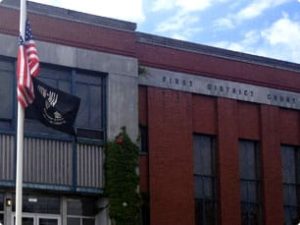Some of the people in Boston who are charged with OUI suffer from alcohol use disorder, even a moderate occasional drinker could be arrested for OUI coming home from a party or restaurant after having a few drinks. Being arrested for OUI can damage your reputation among your family, friends and co-workers and could even result in the loss of your driver’s license. For these reasons, it is important to understand Massachusetts’ OUI laws.
Massachusetts OUI laws
Massachusetts law makes it illegal to drive with a blood-alcohol concentration of 0.08% or above. However, it is also illegal to simply drive “under the influence of intoxicating liquor.” Oftentimes, in addition to a breath test Massachusetts police officers will perform a field sobriety test to determine if a driver is under the influence of alcohol. There are three standard field sobriety tests that may be performed to determine intoxication.
Field sobriety tests
One standard field sobriety test is the horizontal gaze nystagmus test. This is a test that evaluates the involuntary movement of a driver’s eyeballs. When a driver is under the influence of alcohol, this movement is exaggerated and occurs at lower peripheral angles.
The second standard field sobriety test is the walk-and-turn test. The police will request that the motorist take nine steps, heel-to-toe, in a row, then turn around and repeat the same in the other direction. Police will look for signs of intoxication such as losing one’s balance, not touching heel-to-toe, stopping mid-test and taking the wrong number of steps.
The one-leg stand test is the third standard field sobriety test. In this test the police will ask the motorist to stand on one foot and count from 1,001 until the police requests them to put their foot down. Police will observe whether the motorist hops to keep their balance, lowers their raised foot or sways while on one foot
Challenging field sobriety tests
These field sobriety tests, like a breath test, can be challenged. A motorist can argue they were improperly explained, improperly assessed or that the officer asked the motorist to perform a non-standard field sobriety test that is less accurate than standard field sobriety tests. What is good to know is that you have options for defending yourself against drunk driving charges, which can protect your rights, your reputation in your community and your privilege to drive.


